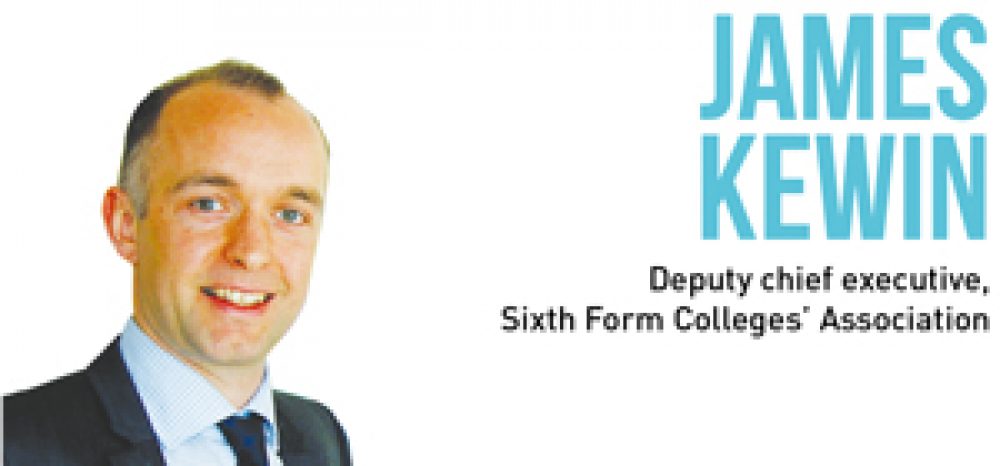The Sixth Form Colleges’ Association (SFCA) has produced its 2015 manifesto in the hope of influencing the political parties ahead of — and after — next year’s general election, explains James Kewin.
With a general election just sixth months away, the Sixth Form Colleges’ Association will today [Monday, November 17] officially launch its manifesto at its conference in Birmingham.
The manifesto makes seven recommendations to political parties on behalf of the 93 Sixth Form Colleges in England, that between them educate more than 158,000 young people.
Despite consistently delivering outstanding outcomes for learners, these are difficult times for many sixth form colleges.
There are a range of challenges facing the sector including funding cuts (on top of existing funding inequalities), curriculum reform (particularly the de-coupling of AS levels from A levels) and competition (the proliferation of new, better funded sixth forms).
The speed with which funding and curriculum reform has been introduced, has created a fourth major challenge — uncertainty. For example, information on the implementation of the new style A-levels or how the mixed-economy of old and new style qualifications will be treated in funding, accountability or inspection terms has still not been provided.
This uncertainty makes strategic planning very difficult. At a practical level, it is difficult to know what to include in prospectuses, or what to say to young people at open days.
And the end of funding protection in 2015/16 continues to loom large — at that point many sixth form colleges will hit the ground with a bump.
At the same time, sixth form colleges see the relentless rise of free school sixth form colleges and school/academy sixth forms — all better-funded, but on the whole delivering poorer outcomes for learners.
Despite being the most effective and efficient providers of sixth form education in the country, the sector feels — with some justification — that its face does not fit in policy terms.
The case for sixth form colleges is incredibly strong, but the past five years have seen brand (academy, free school) trump product (outcomes, value for money).
With that in mind, the manifesto contains a series of practical recommendations to ensure the continued success of students in sixth form colleges. We begin with curriculum.
It is difficult to find many organisations or institutions in the state sector that support the decoupling of AS-levels and A-levels — so our first recommendation is to reverse this change.
Teachers and leaders in practically every sixth form college believe that decoupling will make it more difficult for young people to progress to higher education or employment and will increase the risk of students dropping out of courses.
The sector feels — with some justification — that its face does not fit in policy terms
This reform is about as far away from evidence-based policy making as it is possible to get. A policy change would allow sixth form colleges to retain the AS/A-level link that has served students so well since the introduction of the Curriculum 2000 reforms.
Several of our recommendation relate to funding. For example, the current arrangements for funding students with high needs are chaotic and ineffective and need to be reformed.
We also urge the government to refund the VAT costs of sixth form colleges (as it does for schools and academies) — the present arrangements leave the average sixth form college with £335,000 less to spend on the education of its students each year.
The manifesto urges political parties to drop this learning tax and ensure that young people receive the same level of investment in their education, irrespective of where they choose to study. ‘Drop the learning tax’ will be a call politicians hear a lot between now and May.
And finally, the manifesto calls on the government to introduce a transparent and competitive process for establishing new institutions rather than favouring certain types of sixth form provider.
The obsession with creating small school, free school or academy sixth forms has poorly served many young people since 2010.
To ensure that sixth form colleges can continue to transform the life chances of young people, we are calling on all political parties to adopt the recommendations in
our manifesto.



Your thoughts